Home LivingWellnessSleep4 of the biggest sleep myths, bustedCan you really train your body to sleep less? A sleep expert dispels this and other common sleep mythsWhen you purchase through links on our site, we may earn an affiliate commission.Here’s how it works.
Home LivingWellnessSleep4 of the biggest sleep myths, bustedCan you really train your body to sleep less? A sleep expert dispels this and other common sleep mythsWhen you purchase through links on our site, we may earn an affiliate commission.Here’s how it works.
Can you really train your body to sleep less? A sleep expert dispels this and other common sleep myths
When you purchase through links on our site, we may earn an affiliate commission.Here’s how it works.
(Image credit: Pexels / Polina Kovaleva)
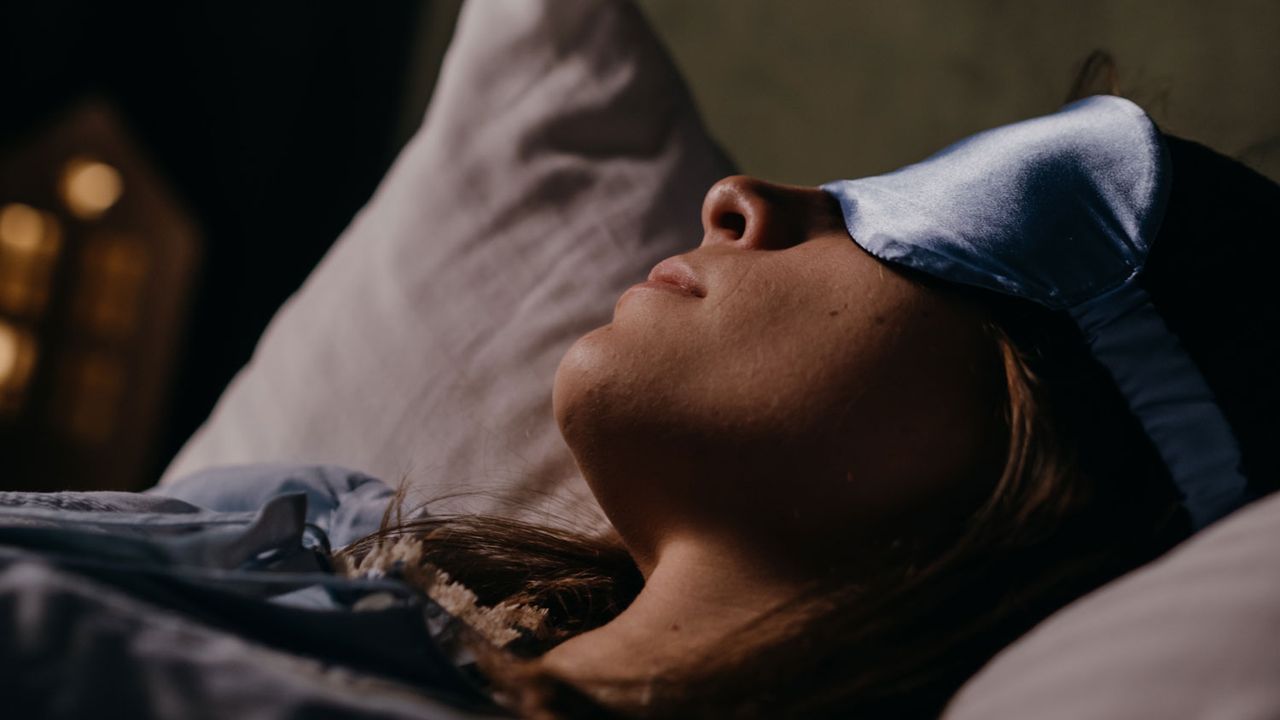
(Image credit: Pexels / Polina Kovaleva)
The importance of a good night’s sleep is something many of us overlook. From politicians and celebrities who claim to need less sleep than us normal folk, to assumptions that we can make up for lost sleep at weekends – many sleep myths might sound believable, but they could actually be harmful to our health.
Typically, adults need between seven and nine hours of sleep, but a lot of us aren’t getting enough.The Sleep Foundationfound that 35.2% of all UK adults sleep for less than seven hours per night on average, while in the UK, almost one in five have trouble falling asleep every single night. This lack of sleep can result in a myriad of health problems, as well as disrupting our work productivity, social lives and general mood.
Want to discover how to fall asleep? T3 spoke to Dr Frankie Jackson-Spence, resident doctor at Time4Sleep, to figure out thesleep hacksthat will actually make a difference. Read on for four sleep myths busted.
And if it’s your bed that’s the issue, head to T3’sbest mattressandbest pillowguides for plenty of tried and tested recommendations.
SLEEP MYTH #1. You can train your body to sleep less
“Sleep is a non-negotiable and a fundamental pillar of our health,” she says. “Lots of important functions happen during sleep, such as memory formation in our brain and the growth and repair of cells. Chronic sleep deprivation can have detrimental long term effects on our health. Once you drop below seven hours of sleep per night your body starts to experience chronic stress and the negative long term effects of chronic sleep deprivation; one of those effects being shorter life expectancy.”
She adds that the short term side effects of not getting enough sleep are also noticeable. These include reduced concentration, reduced ability to problem solve, reduced memory and even things like reduced ability to recognise facial expressions and social cues.
Sign up to the T3 newsletter for smarter living straight to your inbox
Get all the latest news, reviews, deals and buying guides on gorgeous tech, home and active products from the T3 experts
“That’s why we often feel irritable and snappy and take things personally when we’re tired,” she says. “Whilst you might get used to functioning at this level and being chronically tired, it’s not good for your body. Chronic sleep deprivation is chronic stress on your body and you certainly aren’t training your body to cope with this.”
SLEEP MYTH #2. It doesn’t matter when you sleep, as long as you sleep
(Image credit: Pexels / Marcus Aurelius)
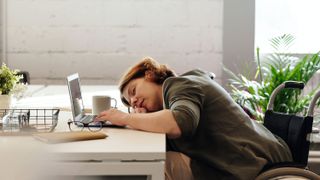
(Image credit: Pexels / Marcus Aurelius)
Those who often find themselves squeezing in an afternoon nap to make up for lost sleep during the night may be disappointed to hear that quality of sleep is just as important as quantity.
“Whilst hours of sleep are important, quality of sleep is also important,” says Jackson-Spence. “Sleeping in a bed with a proper mattress to avoid waking up from discomfort as well as avoiding disturbance from noise or light means your body can cycle through the natural sleep cycles of light and deep sleep without disruption.”
She adds that when you sleep on a sofa, in a chair or even on an aeroplane, you will undoubtedly wake up intermittently – even if you don’t remember doing so. This knocks the sleep cycle out of rhythm, which is why you don’t tend to feel as energised and refreshed when you wake up.
“Sleep is not a bank – you can’t accumulate sleep debt during the week and then try to ‘pay it back’ and catch up at the weekend,” she explains. “It’s better for your health over the long term to sleep consistently for seven to nine hours each night, even on weekends, rather than six hours or less in the week and 10 hours on a weekend. The detrimental effects on your body of not getting the recommended amount on one night can’t be reversed.”
SLEEP MYTH #4. Alcohol helps you sleep
(Image credit: Pexels /)
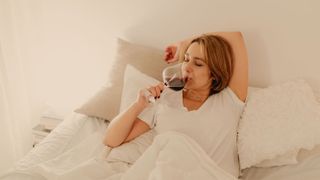
(Image credit: Pexels /)
You might think that a nightcap can help you to fall asleep quicker, but alcohol is actually a huge sleep disrupter.
“Alcohol interferes with the normal cycle of light and deep sleep,” explains Jackson-Spence. “For example, a heavy drinking session can cause us to spend more time in deep sleep and less time than usual in the lighter, REM stages of sleep – the stages where you dream.”
However, the balance between these two stages is important. Jackson-Spence says that getting the right amount of REM sleep is key to feeling refreshed and restored the next day and critical for aspects of mental health and restoration in the brain.
“Interference with sleep quality is one of the reasons people feel the effects of a hangover the next day, along with the lingering of alcohol toxins in the blood and the effects of dehydration on the body.”

Sky Stream gets a great new trick that unlocks long hidden potentialA Sky Stream puck update gives you a host of new channels
A Sky Stream puck update gives you a host of new channels
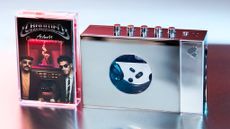
If you ever needed proof that cassette players are back, this is itWe Are Rewind has made a portable tape deck so retro it should appear from nowhere in a DeLorean
We Are Rewind has made a portable tape deck so retro it should appear from nowhere in a DeLorean
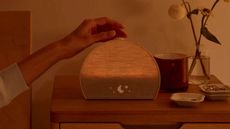
Hatch’s latest sunrise alarm clock finally has a phone-free design – and I’m obsessedHatch launches the Restore 3 wake-up light and it could drastically improve your mornings
Hatch launches the Restore 3 wake-up light and it could drastically improve your mornings
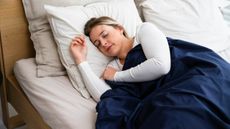
This ERA mattress topper can turn your mattress into a smart sleep tracking deviceThe ERA Smart Layer is my favourite wellness product from CES 2025
The ERA Smart Layer is my favourite wellness product from CES 2025
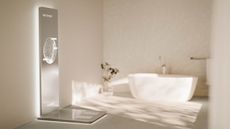
Withings’ smart mirror combines a smartwatch and scales into a full-length health scannerWithings debuts new conceptual smart health mirror at CES 2025
Withings debuts new conceptual smart health mirror at CES 2025

6 gadgets to get you through Dry JanuaryWith Christmas and New Year out of the way, we take a look at some of the best gadgets to use for Dry January
With Christmas and New Year out of the way, we take a look at some of the best gadgets to use for Dry January
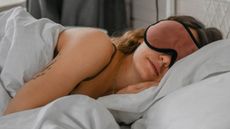
This pillow flip sleep hack can help you beat Christmas insomnia – and it takes secondsIf you love the cold side of the pillow, you’ll love this quick sleep hack
If you love the cold side of the pillow, you’ll love this quick sleep hack
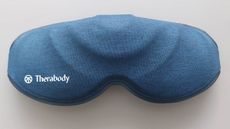
Therabody SleepMask review: soothing vibrations that send you to sleepTherabody’s new SleepMask promises a good night’s sleep – but does it work?
Therabody’s new SleepMask promises a good night’s sleep – but does it work?
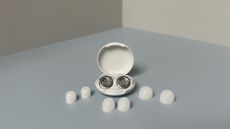
I spent 24 hours with the new Loop Switch 2 earplugs – here’s my honest takeFrom fun to focus to calm…I tried them in every scenario
From fun to focus to calm…I tried them in every scenario
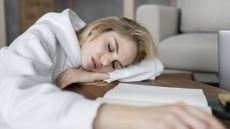
Sleep expert reveals why you should never nap for longer than 10 minutesThe answer will shock you
The answer will shock you